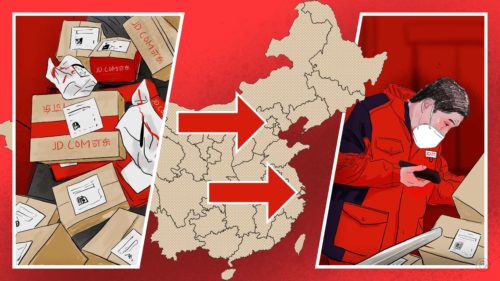China has given experimental COVID-19 vaccines to one million people
Five Chinese coronavirus vaccines are in Phase 3 clinical trials, but China has not waited for trials to be complete to inject about one million people since July. Preliminary data suggests that China’s vaccines may be less inoculating than those by Pfizer and Moderna.

China has given experimental COVID-19 vaccines to about 1 million of its citizens in less than four months, all outside of the formal clinical process to verify the safety and effectiveness of vaccines, which has not yet been completed for any of the five Chinese vaccines currently in Phase 3 trials.
- The chairman of Sinopharm (China National Pharmaceutical Group), Liú Jìngzhēn 刘敬桢, has said (in Chinese) that through China’s emergency use authorization program started on July 22, “nearly one million people” have received experimental COVID-19 vaccines.
- According to Liu, there have been no reports of severe side effects from the vaccinations, though a few individuals have had “slight symptoms.”
Sinopharm makes two of the vaccines that are being distributed through the emergency use authorization program. A third vaccine developed by Sinovac Biotech is also part of that program, per Reuters.
- Even as those vaccines start to get wide distribution outside of clinical trials, in a move that health experts generally consider an unnecessary risk, they are also undergoing Phase 3 trials in many countries around the world.
- A fourth vaccine from CanSino Biologics has Phase 3 trials ongoing in Saudi Arabia, Pakistan, and Russia, per the New York Times vaccine tracker.
- A fifth Chinese vaccine, from Anhui Zhifei Longcom Biopharmaceutical, a subsidiary of listed Chongqing Zhifei Biological Products, has “entered Phase III clinical trials” this week, per Yicai Global. State media reported that trials for this vaccine would be conducted in Uzbekistan, Indonesia, Pakistan, and Ecuador.
What if Chinese vaccines are less effective?
Sinovac Biotech published early-stage trial results — i.e., Phase 1 and Phase 2, not Phase 3 — in the Lancet journal on November 17.
- The vaccine did “induce antibodies in the human body within 28 days of the first immunization,” according to the study, reports the Wall Street Journal, but the level of antibodies was “lower than that seen in people who were previously infected with COVID-19.”
- “By contrast, the levels of antibodies in results from vaccine trials by Pfizer and Moderna were roughly on par with those in people who previously contracted the virus,” the WSJ says, however, scientists still “don’t know what absolute level of antibody is needed to protect against the new coronavirus disease.”
- The preliminary results from Pfizer and Moderna are based on large-scale Phase 3 trials, which gather more reliable data to measure the effectiveness of vaccines. Neither company has yet applied for emergency use authorization in any country, though Pfizer is expected to apply later this month.
Reasons why China might still vaccinate the world
There is a lot still unknown about the exact effectiveness of various vaccines, and the timelines on which they might be formally rolled out to the general public.
- One disadvantage of the vaccines by Pfizer and Moderna, even if they do end up producing a more robust immunity to the coronavirus, is that they have to be stored at frigid temperatures (-70°C / -94°F for Pfizer; -20°C / -4°F for Moderna) to prevent the vaccine’s mRNA structure from falling apart. This makes distribution challenging, especially in developing countries.
- China has already pledged to share its vaccines with many developing countries (and joined the COVAX initiative, which the U.S. has shunned), and it’s possible that one or more of its five vaccines will be more suitable for distribution to far-fledged locations.
- Sinovac Biotech’s vaccine, which it calls CoronaVac, “can be stored in a standard refrigerator between 2 and 8 degrees Celsius,” and can also “remain stable for up to three years in storage,” a researcher told the WSJ.
- CoronaVac is also “cheap and fast to make in comparison to the mRNA vaccines, so even if it offers only partial protection, that could be useful in areas of the world that might not have access to the other vaccines,” Gregory Poland, a vaccinologist and professor at the Mayo Clinic, told NPR.
- Brazil is among the countries most involved in testing Chinese vaccines, and Reuters reports that “120,000 doses of CoronaVac” arrived in the country this morning, ready for distribution upon approval.






